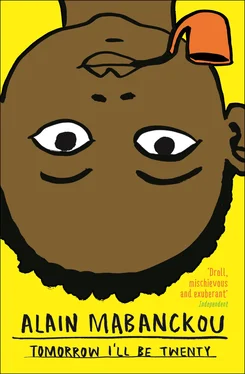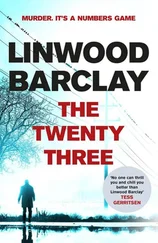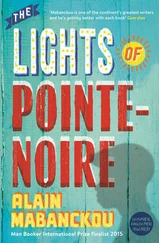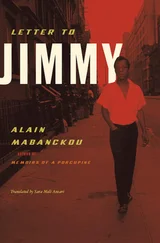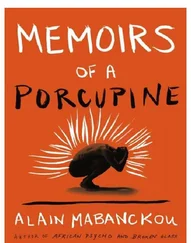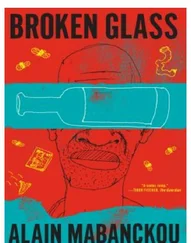If I, Michel, was Cambodian, I would have supported Vietnam, no question. Not everyone likes the fact that Vietnam went into Cambodia to drive out the wicked Khmer Rouge. The Russians are ok with it, but countries like China or America and lots of others that secretly support the Khmer Rouge say: It’s wrong for Vietnam to go into Cambodia like that, we don’t agree, we’re going to carry on supporting the Khmer Rouge who are hiding in the bush. The Chinese even declared: We’re going to punish the Vietnamese too, we’re going to attack them good and proper, we’re going into their country like they went into Cambodia and we’ll see what happens then. Fortunately the Chinese plan failed.
The result is, it’s a mess down there: now there’s a new government in Cambodia and from now on their country’s called the Popular Republic of Kampuchea. So in a way they’re like our brothers, but I don’t know if our country is against Vietnam or for it, because Roger Guy Folly doesn’t mention us in all this. Why would he talk about us? Who wants our opinion? Our country is so small, it’s never mentioned in the news. If we have a conflict here one day, like what’s happening in Cambodia, then they’ll talk about us all the time, as if we were a big country. On the other hand, I prefer it if they don’t talk about us on the radio. Yes, I prefer being a little country, at least that way they leave us in peace; we can take it easy, which means no war, no grabbing another country’s cities, no Khmer Rouge here; no Pol Pot either, giving the Popular Republic of Kampuchea grief from where he’s hiding out in the bush.
I feel really sick when Uncle René tells my mother that Papa Roger isn’t my real father, that he’s just a ‘foster father’. I don’t care for Papa Roger because he ‘fosters’ me, and he didn’t decide to be my father so he could do some ‘fostering’. Even ‘adoptive’ father’s better than that, at least that means he chose me and chose me after careful reflection. Papa Roger did actually see me before he decided to make me his child. Normally you don’t get to choose what your children look like, you don’t even see them before they come into the world. You wait for the doctor to say it will be a girl, or a boy. If Papa Roger really hadn’t wanted me when he first set eyes on me, he’d have left me alone with my mother. But I smiled at him that day — and according to Maman Pauline I was very happy, apparently that’s the moment when I came alive, and said to myself: ‘I, Michel, will be someone in life.’
Papa Roger is my father, that’s all there is too it. I don’t want to know if I’ve got a real father somewhere. I’ve no wish to see the face of some man I don’t know, who’s supposedly my real father. He’s a coward, who left Maman Pauline all alone in hospital when he had married her back in Louboulou, my mother’s village. He was a policeman there, before he brought my mother to live in the district of Mouyondzi where he’d been transferred to. Maman Pauline was a little girl to him. And only two years after they married, this policeman said to her: now I’m going to do what I like, I’m sending you back to your bush, if you don’t agree. If you dare open your mouth, I will take more wives if I feel like it, Miss village girl from Louboulou, I’ll have your family put in prison till the end of time.
Whenever Maman Pauline tried to speak, the policeman waved his pistol at her, like in a cowboy film and shouted: ‘What use to me are you, eh, Pauline? You’ve been pregnant twice. And twice the child was born dead, straight from your womb! So what use are you, eh? Your family are all sorcerers. They’ve put a gris-gris in your belly! You’ll never have children!’
The policeman had stopped sleeping at home. He turned up for a few minutes in the morning to change his clothes, then he’d rush off again, as though our house was occupied by demons. Maman Pauline kept her mouth shut. What could she say to the guy? She knew very well that he lived with other women he loved more than her, other women he could have children with, who wouldn’t die as they came out of their mother’s womb. Maman Pauline left the door open all night because the policeman got angry with her if she shut it. He wanted to come and go whenever he pleased, whatever time of day. But he only came every other day, then every third day, then once a week, then once a month. Then Maman Pauline saw him no more. She didn’t even try asking at the police station where he worked. By the time the policeman had been gone three months, she had another problem which made her very sad: her belly was getting bigger. And she stopped leaving the house — she didn’t want the neighbours to see. She waited till nightfall to go out and do her shopping, from the women who sold soup in the streets. She wore several pagnes, to hide her belly.
Maman Pauline often tells me how, on the night when I started kicking like a little bandit to be let out of her womb, she walked all the way to the central hospital in Mouyondzi. I nearly didn’t make it into this world because I was afraid of the men and women sitting round chatting in the delivery room. I thought that when I arrived on this earth there’d be silence, that I’d be all alone with her, like I was inside her, when I swam around holding on to the tube that sent me my food every day. But there you go, I didn’t want my mother to be unhappy, I didn’t want to go to heaven like my sisters. If people were sitting around talking, then there must be something wrong, and I wanted to know what, because no one was going to explain to me up in heaven why people like sitting around talking on earth, even when they’re in a hospital room. I wanted to see these people’s faces with my own eyes, hear their voices with my own ears. In fact, the people sitting round talking in the delivery room thought I was going to be silly enough to go the same way as my two sisters. But I wanted to live, I wanted to follow my mother wherever she went, I wanted to protect her against all the policemen on earth who threaten their wives with pistols when they’re meant to be threatening criminals. So the nurses watched me round the clock. I watched them too, with one eye, and on their sad faces I read that they were expecting the worst, because they’d already seen my mother in this hospital, in this same room, seen her leave in tears with a stone-cold baby in her arms, heading for the morgue, where she leaves the baby in the fridge. Some of the nurses were checking to see if I was breathing still. I said to myself: ‘I’m going to have a game with these adults, I’m going to show them I know their language, I know what they’re thinking.’ I had this little game, where I held my breath, closed my eyes, squeezed my lips and my buttocks, and sometimes went so pale I looked like the corpse of a white baby, since black babies, when they come into this world, are generally all white. And only turn black afterwards. Otherwise their parents will argue and think the real father’s a white man from up town. Thinking I was truly dead, the nurses rushed towards me. They started whimpering with my mother. Suddenly I opened my eyes. I felt like shouting: leave me alone, can’t you see I’m breathing? Can’t you see I’ve been alive for three days now, and my sisters were not even here for one day? If I really wanted to go to heaven would I be hanging around here all this time like an idiot who doesn’t know what he has to do to die? I may be a baby, I still know how to die, but I don’t want to stop breathing! I want to live! Let me rest now, I’ve come a long way! And let’s have a bit of quiet please. We’re in a hospital here!
Maman Pauline came home with me a week after I arrived in this world. Her policeman’s never shown up, though he must have heard of me. My mother heard he was already going round saying he wasn’t my father, that she’d made this child with some local guy, the postman, maybe, or the palm-wine tapper, who, like the postman, passed by our house each morning. That’s what they were saying, all over Mouyondzi, and people came to spy on us. But they never found a man living in our house, or who came round at midnight and left in secret at five in the morning. In the market some of the women said that my mother had had a child with a devil who came to our house at night. I don’t think anyone there ever saw my face. When we went out, my mother covered my body from head to foot, leaving just two little holes so I could at least see the colour of the sky, because up there no one’s wicked.
Читать дальше
